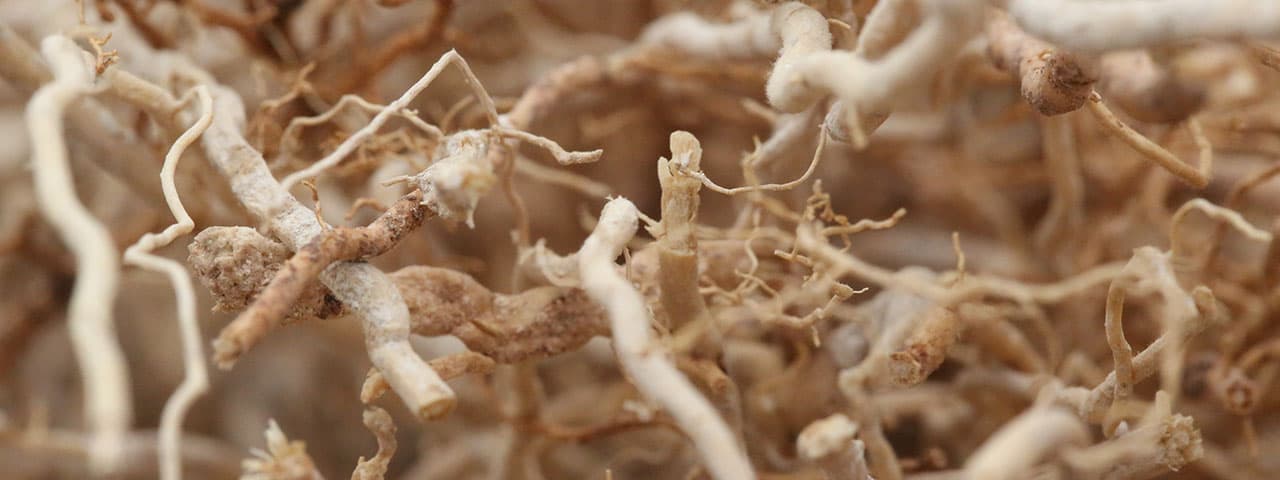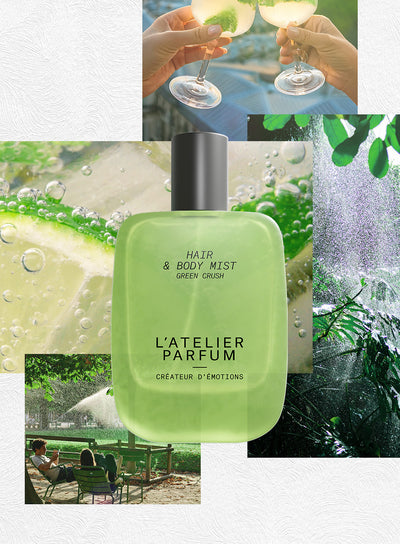- Ingrédients, Vétiver
- L'Atelier Parfum
Vetiver : a charismatic ingredient

What does the word “Vetiver” mean?
The term "vetiver" refers to a tropical plant in the Poaceae family, known by its scientific name Chrysopogon zizanioides. It is mainly cultivated for its roots, which are widely used in perfumery, aromatherapy, and traditional medicine.
The word "vetiver" comes from the Tamil term vetiveru, meaning "braided root," in reference to its deep and interwoven root system. These roots are essential for extracting vetiver essential oil, renowned for its rich, earthy aroma. Today, vetiver is cultivated in tropical regions around the world, notably in Haiti, Java, Réunion Island, Madagascar, and India.
The origins and history of Vetiver
Vetiver has been used for thousands of years and holds an important place in many cultures. The earliest traces of vetiver go back to the Indus Valley civilization, where it was valued for its medicinal and fragrant properties.
Over the centuries, the plant spread throughout Asia, Indonesia, Madagascar, and Haiti, where it has been cultivated for its roots rich in essential oil. Thanks to its unique fragrance and soil-stabilizing properties, vetiver has gained commercial and ecological importance, becoming a prized resource in both perfumery and agriculture.
Cultivation and Harvesting of Vetiver
The main producers of vetiver are:
The term "vetiver" refers to a tropical plant in the Poaceae family, known by its scientific name Chrysopogon zizanioides. It is mainly cultivated for its roots, which are widely used in perfumery, aromatherapy, and traditional medicine.
The word "vetiver" comes from the Tamil term vetiveru, meaning "braided root," in reference to its deep and interwoven root system. These roots are essential for extracting vetiver essential oil, renowned for its rich, earthy aroma. Today, vetiver is cultivated in tropical regions around the world, notably in Haiti, Java, Réunion Island, Madagascar, and India.
The origins and history of Vetiver
Vetiver has been used for thousands of years and holds an important place in many cultures. The earliest traces of vetiver go back to the Indus Valley civilization, where it was valued for its medicinal and fragrant properties.
Over the centuries, the plant spread throughout Asia, Indonesia, Madagascar, and Haiti, where it has been cultivated for its roots rich in essential oil. Thanks to its unique fragrance and soil-stabilizing properties, vetiver has gained commercial and ecological importance, becoming a prized resource in both perfumery and agriculture.
Cultivation and Harvesting of Vetiver
The main producers of vetiver are:
- Haiti – Known for the exceptional quality of its essential oil, used in luxury perfumes.
- India – A major producer, particularly in the states of Tamil Nadu and Kerala.
- Madagascar & Réunion Island – Known for their distinctive olfactory profiles.
- Indonesia, China, Brazil, the Comoros Islands, and Fiji – Other major producers.
The Cultivation Process
- Planting: Vetiver cuttings are taken from mature plants and inserted into prepared soil, about 15 cm deep and spaced 30 to 45 cm apart.
- Irrigation and Care: Regular watering and weeding are essential during the early growth phase.
- Development and Ecological Benefits: Its deep root system helps prevent erosion and enriches the soil.
- Harvesting: After 18 months to 2 years, the mature roots are dug up, cleaned, and prepared for essential oil extraction.
- Replanting: Fresh cuttings are used to ensure continuous cultivation.
The Vetiver Essential Oil Extraction Process
- Harvesting and Preparation: The roots are carefully washed, dried, and chopped.
- Steam Distillation: This process extracts the valuable vetiver essential oil.
- Purification: The oil is filtered to remove impurities, resulting in a pure and concentrated essence.
- Low Yield, High Value: Vetiver extraction produces a low yield (about 0.5% to 1%), which means only 5 to 10 kg of essential oil is obtained from 1,000 kg of roots.
Vetiver cultivation requires careful maintenance, ensuring a high-quality essential oil with unique aromatic and therapeutic properties.
The Unique Olfactory Profile of Vetiver
Vetiver essential oil offers a rich and versatile scent signature:
- Earthy & Woody: Deep, warm notes reminiscent of nature.
- Smoky & Nutty: Subtle nuances of hazelnut, tobacco, and peanut.
- Green & Citrus: Some varieties feature hints of grapefruit or fresh-cut grass.
- Leathery & Spicy: Can be blended with spices like cardamom, pepper, or sandalwood for added complexity.
Fragrance Pairings with Vetiver
- With Woody Notes → Pairs beautifully with sandalwood, cedar, and patchouli for a warm, rich scent.
- With Spicy Accords → Enhanced by pepper, cardamom, and nutmeg for an intriguing contrast.
- With Citrus Accords → Energized by lemon, grapefruit, and bergamot, balancing freshness with earthy depth.
Vetiver’s Effect on Mood
Impact on the Mind: Deeply calming, grounding, and comforting. Why? Its earthy, woody aroma helps reduce stress, anxiety, and mental fatigue. It is often used in aromatherapy for relaxation and emotional balance.
Ideal for moments of relaxation, meditation, and stress relief.
Vetiver’s Health and Wellness Benefits
Traditional Medicine and Therapeutic Properties
- Antiseptic & Anti-inflammatory → Treats skin infections, eczema, and burns.
- Relaxation & Anti-Stress → Vetiver essential oil is known for its calming effects, helping relieve anxiety and insomnia.
- Aromatherapy & Emotional Balance → Promotes relaxation, used in meditation and holistic treatments.
Ecological and Agricultural Benefits
- Prevents Soil Erosion → Its deep roots stabilize the soil and prevent degradation.
- Improves Soil Fertility → Helps restore nutrients and supports sustainable agriculture.
Versatile Applications
- In Cosmetics → Incorporated in lotions, serums, and creams for its soothing and hydrating properties.
- In Home Fragrance → Used in candles, diffusers, and incense for its warm and comforting scent.
- As a Natural Remedy → Blended into massage oils to ease tension and muscle pain.
Vetiver: A Timeless Essence
From its ancient origins in the Indus Valley to its modern use in luxury perfumes, medicinal remedies, and sustainable farming practices, vetiver remains a cherished plant. Its deep, lingering scent, therapeutic benefits, and ecological value make it an essential ingredient.
Parfums iconiques contenant du Vétiver
Vétiver – Guerlain
Encre Noire – Lalique
Sycomore – Chanel
Vétiver Extraordinaire – Frédéric Malle
Terre d’Hermès – Hermès
Grey Vetiver – Tom Ford





